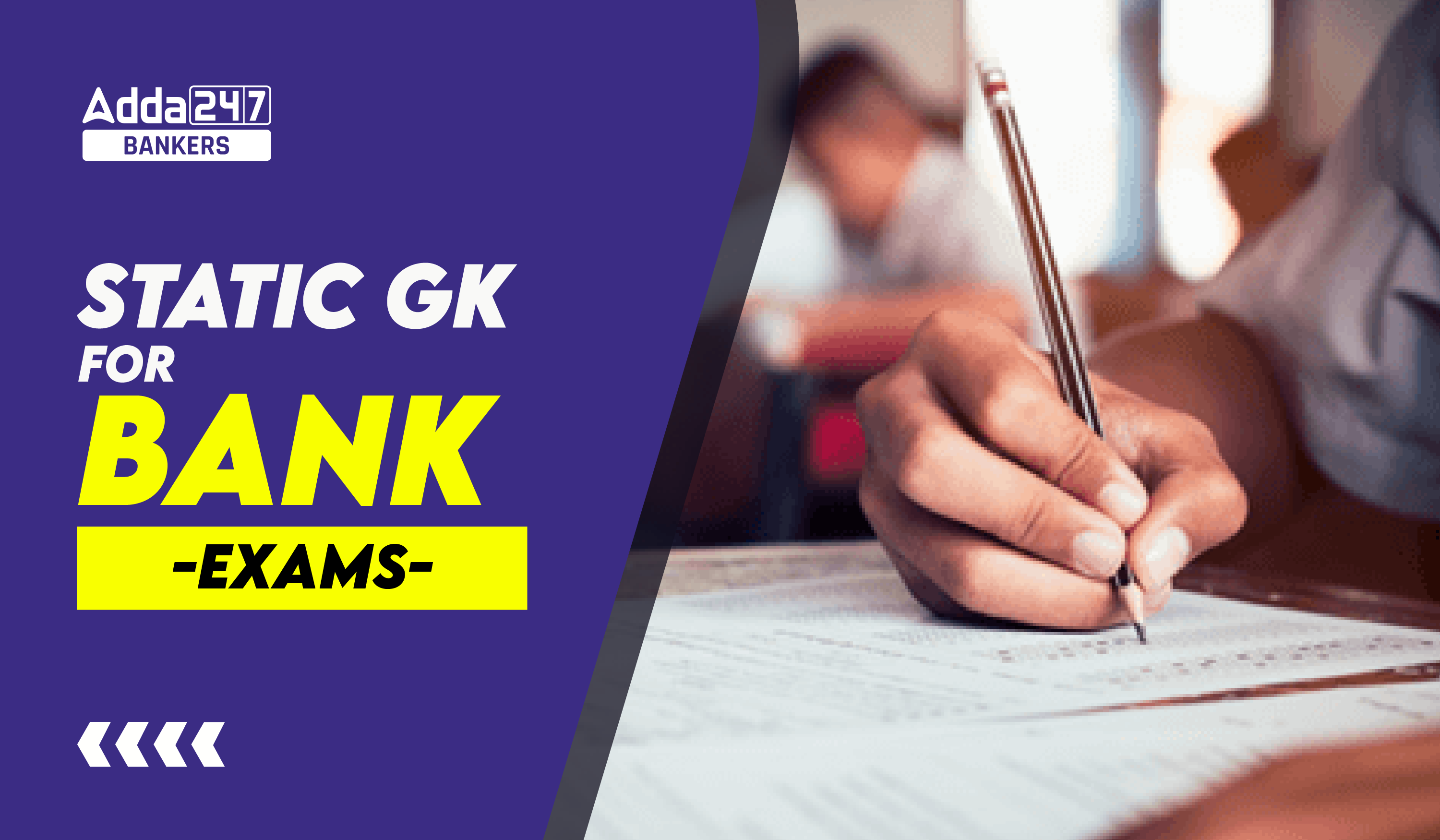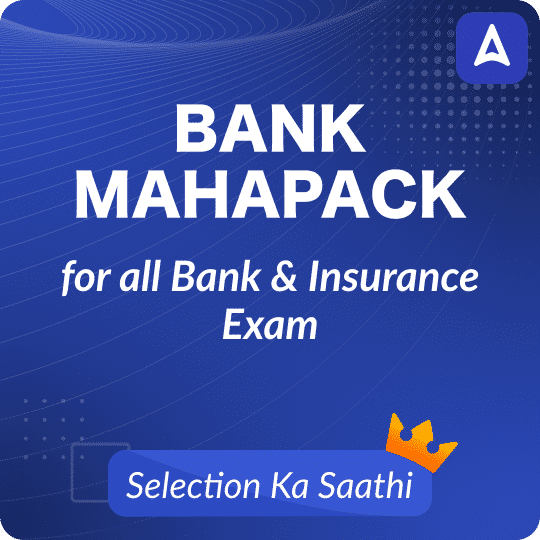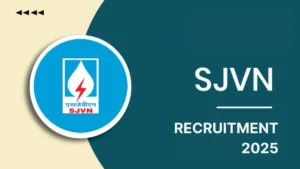Table of Contents
Static GK for Bank Exams
Static General Knowledge (GK) plays a crucial role in bank exams. The candidates aspiring to get a job in a bank or financial institution must be equipped with the Static GK portion. This article serves as the guide to Static GK for Bank Exams, which includes a syllabus, effective preparation strategies, and some questions to help aspirants excel in this section.
What is Static GK for Bank Exams?
Unlike Current Affairs and General Awareness, which revolve around recent events and History, Geography, Science & Polity, Static GK comprises facts, figures and information that remains constant over time. It includes a wide range of topics i.e. Banking Awareness, Festivals in India, Dance Forms, First in India, and many more. Mastering Static GK helps in improving overall scores as well as confidence in their exams and a better understanding of the world around them.
Static GK Syllabus for Bank Exams
The Syllabus for Static GK for Bank Exams is extensive and encompasses various topics. Some common topics for the Static GK Syllabus for Bank Exams are listed below
| Static GK Syllabus for Bank Exams | |
| Category | Topics |
| Geography and Environment |
|
| Government Schemes and Policies |
|
| Culture and Festivals |
|
| Sports and Recognition |
|
| Infrastructures and Landmarks |
|
| International Relations and Summits |
|
| Science and Technology |
|
| Miscellaneous |
|
Static GK Preparation Strategy for the Bank Exams
Preparing for the static GK section of the Bank Exam is not a hard nut to crack rather requires a strategic approach to cover a wide range of topics effectively. Here’s a comprehensive strategy to aid in preparing Static GK for the Bank Exams
- Understanding the syllabus: Static GK is a vast section like an Ocean. However, a conducting body asks questions from the relevant portion of this Ocean, topics and syllabus are listed above.
- Rely on Standard Study Material: The source of your preparation should be authentic such as NCERT Textbooks, our ADDA 247 Static GK E-books/ printed books/ PDFs or other reputable online resources, ensure that the information is accurate and up-to-date. Avoid relying solely on the non-reputable source, it may contain inaccuracy or misinformation.
- Prioritize Concept Building: Focus on understanding the core concepts and building a strong foundation in each topic.
- Utilise Memory Techniques: Static GK involves memorizing a significant amount of factual information. Employ effective memory techniques like mnemonics, acronyms, and mind maps to retain important facts, figures, and chronological events.
- Practice Previous Years’ Question Paper: Regular practice is crucial for static GK preparation. Solve previous years’ question papers, mock tests, and quizzes to identify your strengths and weaknesses.
- Focus on Interconnections: Static GK topics are often interconnected. For instance, understanding historical events can help in comprehending cultural practices, geographical features, and economic policies. Identify these interconnections and integrate your learning across topics.
- Revise Regularly: Static GK requires consistent revision to retain the information you’ve learned. Set aside dedicated time for revision, either daily or weekly, depending on your preferences. Revisit your notes, practice questions, and areas of weakness during these revision sessions.
- Maintain a Positive Mindset: Static GK preparation can be daunting due to the vast syllabus and memorization required. However, maintain a positive mindset, stay motivated, and consistently work towards your goals.
Importance of Static GK
Static GK forms a crucial component of competitive exams, especially in the IBPS RRB Exam. Here are several reasons why static GK holds immense significance
- Knowledge Base: Static GK contains a wide range of topics including national and international events, historical facts, geographical landmarks, government schemes, personalities, awards, etc. By mastering Static GK, candidates demonstrate a well-rounded knowledge base essential for success in competitive exams.
- Competitive Edge: In today’s market scenario, possessing an understanding of Static GK sets candidates apart from their peers. Employers value candidates who exhibit a broad spectrum of knowledge, including current affairs and historical events.
- Enhances confidence: Mastering Static Awareness makes candidates confident, enabling them to approach exams and interviews with self-assurance.
- Professional Growth: Beyond clearing exams, Static GK remains valuable throughout an individual’s banking career.
Effective Study Strategies for Static GK for Bank Exams
Understanding and retaining Static GK information is essential as it forms a significant portion of the exam syllabus (more weightage in IBPS RRB exams). With effective study strategies for static GK, aspirants can navigate through the exam with confidence and competence.
- Mnemonics can aid in remembering complex information such as historical dates, capitals and abbreviations. Create mnemonics associated with facts in memorable phrases or picturised form
- Create study and revision schedules
- Take mock tests and solve previous years’ question papers
- Stay Updated as Static GK is not entirely static, it may include current affairs and recent developments.
- Refer to trusted study materials, books and online resources for static GK preparation.
- Consistency is key to mastering static GK. Dedicate a fixed amount of time each day for studying static GK topics and stick to your study schedule diligently.
Static GK: Banking Awareness
We can say that Banking Awareness is also part of Static GK and this is one of the most important sections of the Banking exam. Questions from the banking awareness segment mainly appear in the Mains Examination of Clerk, PO, RBI Assistant exam, and generally in SO Exams it may appear in the Preliminary level also. Adda 247 provides the comprehensive Banking Awareness segment which includes the Banking History, RBI, Banking Abbreviations, Rates, etc. The topics included in Banking Awareness are listed below
Current Affairs Integration in Static GK for Banking Exams
In banking exams, the integration of current affairs into static GK, not only enhances candidates’ understanding but also stays updated with the dynamic world around them. Our team Adda 247 provides the Daily Current Affairs, which will help in covering the current affairs section. Regular review sessions, practice with mock tests, and linking events to core concepts further solidify this integration, ensuring aspirants are well-prepared to navigate the complexities of banking exams.
Static GK: Practice Questions
Q. 01. On which river Dudhwa Dam is built across in Chhattisgarh?
- Sone River
- Indravati River
- Mahanadi River
- Narmada River
- Godavari River
Q. 02. The folk dance “Fugdi” is associated with which state?
- Maharashtra
- Karnataka
- Goa
- Telangana
- None of these
Q. 03. Where is the headquarters of SIDBI?
- New Delhi
- Lucknow
- Mumbai
- Gujarat
- Bangalore
Q. 04. What is the theme of World Health Day 2024?
- My Health, My Right
- Health for All
- For Every Child, Every Right
- Yoga for Wellness
- None of these
Q. 05. The first Indian woman to climb Mount Everest is
- Kalpana Chawla
- Malavath Purna
- Anshu Jamsenpa
- Bachendri Pal
- Arunima Sinha
Q. 06. The Governor of RBI is appointed by:
- The Prime Minister
- The President
- The Finance Minister
- The Parliament
- RBI itself
Q. 07. The pin code system was introduced in India in:
- 1947
- 1871
- 1889
- 1960
- 1970
Q. 08. The highest civilian award in India is:
- Padme Bhushan
- Padma Vibhushan
- Arjuna Award
- Padma Shri
- Bharat Ratna
Q. 09. The largest freshwater lake in India is
- Chilaka Lake
- Wular Lake
- Dal Lake
- Loktak Lake
- Pangong Tso
Q. 10. First Indian satellite launched into space was
- Aryabhatta
- INSAT-1B
- Chandrayan-1
- Bhaskara Sega-I
- Gaganyan
Q. 11. Which city is known as the City of Lakes in India
- Kashmir
- Bhopal
- Shillong
- Udaipur
- Nainital
Q. 12. What is the currency of the UAE?
- Shilling
- Pound
- Dinar
- Riyal
- Dihram
Q. 13. Who is the author of “I Do What I Do”?
- Shaktikanta Das
- Raghuram G. Rajan
- Arvind Subramanian
- Gita Gopinath
- S. Jaishankar
Q. 14. Who is the first woman Deputy Governor of RBI?
- Usha Thorat
- K J Udeshi
- Ila Patnaik
- Gita Gopinath
- Poonam Gupta
Q. 15. World Red Cross Day is celebrated on
- 08th May
- 08th April
- 26th May
- 26th April
- None of these
Q. 16. Which is the largest national park in India?
- Desert National Park
- Mount Harriet National Park
- Hemis National Park
- Saddle Peak National Park
- Campbell Bay National Park
Q. 17. Which Bird sanctuary is known as the “Bird Paradise of India”?
- Mayani Bird Sanctuary
- Bharatpur Bird Sanctuary
- Nawab Ganj Bird Sanctuary
- Sultanpur Bird Sanctuary
- Nal Sarovar Bird Sanctuary
Q. 18. Which award is known as Asia’s Nobel Prize?
- Asia Iconic Award
- Pulitzer Prize
- Ramon Magsaysay Award
- Copley Medal
- Bharat Ratna
Q. 19. Who is the first RBI Governor of Independent India?
- L. K. Jha
- Sir Osborne Smith
- Sir Benegal Rama Rao
- C. D. Deshmukh
- H. V. R. Iyengar
Q. 20. Where is the International Labour Organisation located?
- Rome
- Berlin
- Paris
- New York
- Geneva
| Answers | |||||||||
| 1. | c | 2. | c | 3. | b | 4. | a | 5. | d |
| 6. | b | 7. | d | 8. | e | 9. | b | 10. | a |
| 11. | d | 12. | e | 13. | b | 14. | b | 15. | a |
| 16. | c | 17. | b | 18. | c | 19. | d | 20. | e |





 GA Capsule for SBI Clerk Mains 2025, Dow...
GA Capsule for SBI Clerk Mains 2025, Dow...
 The Hindu Review October 2022: Download ...
The Hindu Review October 2022: Download ...
 SJVN Recruitment 2025 Notification Out f...
SJVN Recruitment 2025 Notification Out f...




